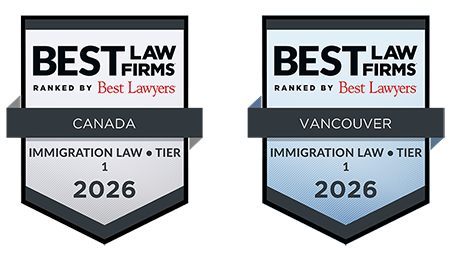International students comprise the majority of the temporary entrants to Canada and their numbers have grown dramatically in recent years. Virtually all of the international students that we meet in our immigration law practice have the clear intention of becoming permanent residents of Canada following graduation. While that may have been feasible in years past, it is no longer the case and international students and their families need to be aware of this significant reality. If permanent residence (PR) is your ultimate goal in your pursuit of a Canadian education, then you need to develop a strategy early on in order to succeed.
Once upon a time, back in 2005/2006, international students were enticed to come to Canada to obtain a Canadian education and then apply for a post graduation work permit (PGWP) and permanent residence was guaranteed! International students (and their parents) jumped on this offer and many were successful and not only obtained their own permanent residence but within a few years of successfully establishing themselves in Canada, they were able to sponsor their parents and younger siblings to join them in Canada. It was a great comprehensive family immigration strategy developed and promoted by Canada's own immigration department. With immigration applications increasing, a backlog developed and in 2012 the skilled worker immigration program was suspended and terminated (as was the parental sponsorship program in Jan 2014) and in January of 2015 the Express Entry (EE) immigration selection program was developed which allowed for Canada's immigration officials to have greater control as to who could apply for permanent residence. (For a greater understanding of the EE selection system please refer to our former blogs here: https://canadian-visa-lawyer.com/?s=Express+Entry ). Many international students felt duped into coming to Canada on the promise of permanent residence only to learn that once EE was introduced, they had to qualify for PR along with any other applicant.
Notwithstanding this change in the selection process for immigration from January 1, 2015, people are reluctant to relinquish historical knowledge. International students are still coming to Canada to study immediately following graduation from high school seemingly secure in the knowledge that they will qualify for PR upon graduation from a Canadian post secondary diploma program and obtaining one or two years of work experience, when it is virtually impossible to do so. I have been advising of this challenge shortly after the introduction of the EE program and continuously thereafter: Please refer to our blogs
- “The Comprehensive Ranking Score – How do Students fare?”, September 29, 2015
- “When should I study in Canada? – Considerations for an International Student”, September 10, 2018
- “News Flash: Not all international students will become Canadian permanent residents”, November 26, 2019
However, if any doubt lingers about my advice on this point, Canada's Minister of Immigration, Refugees and Citizenship Canada (IRCC) the Honorable Marc Miller has made this crystal clear. The Minister's own public speeches clearly set this out:
“It shouldn't be a foregone conclusion that if you're an international student you will become a Canadian citizen.”
– Honorable Marc Miller, Minister of IRCC – Announcement of Steps to Strengthen Canada's International Student Program, Brampton, Ontario, October 27, 2023
What does this mean for prospective international students who aspire to obtain permanent residence? It means you need to educate yourself about Canada's immigration process – both the temporary program as a student and the permanent program and how you may qualify in the future. You need to develop a realistic strategy that you can work towards over time. Given the current points levels necessary to receive a draw, applicants need to focus on where they can realistically increase their points scores – Canadian work experience, language proficiency, foreign work experience or foreign education – and ideally a combination of these factors.
Furthermore, an aspiring international student should be aware that they are a prized commodity – not only by IRCC but by unscrupulous immigration professionals (including consultants, lawyers and educational representatives) and that relying on advice from such individuals can jeopardize everything that you are working towards. CAVEAT EMPTOR! (Buyer beware). Educational advisors may refer you to schools which pay them a commission even though the educational instruction won't lead to a PGWP after graduation. Unscrupulous immigration advisors charge fees with significant promises which often don't materialize upon arrival in Canada. Canada's Minister of IRCC has recognized this reality with his recent announcement of October 27, 2023 implementing changes to the international student program with the goal of protecting international students to Canada (See the Minister's announcement here: https://www.canada.ca/en/immigration-refugees-citizenship/news/2023/10/changes-to-international-student-program-aim-to-protect-students.html ) If something sounds too good to be true…it probably is. Do your homework before signing on the dotted line or handing over your money.
Conclusion
Notwithstanding that IRCC keeps welcoming international students to Canada at ever increasing levels, there is no clear path to permanent residence. Students need to pursue a Canadian education for the value that it represents in their ultimate career path with the potentiality for Canadian permanent residence in the future.





